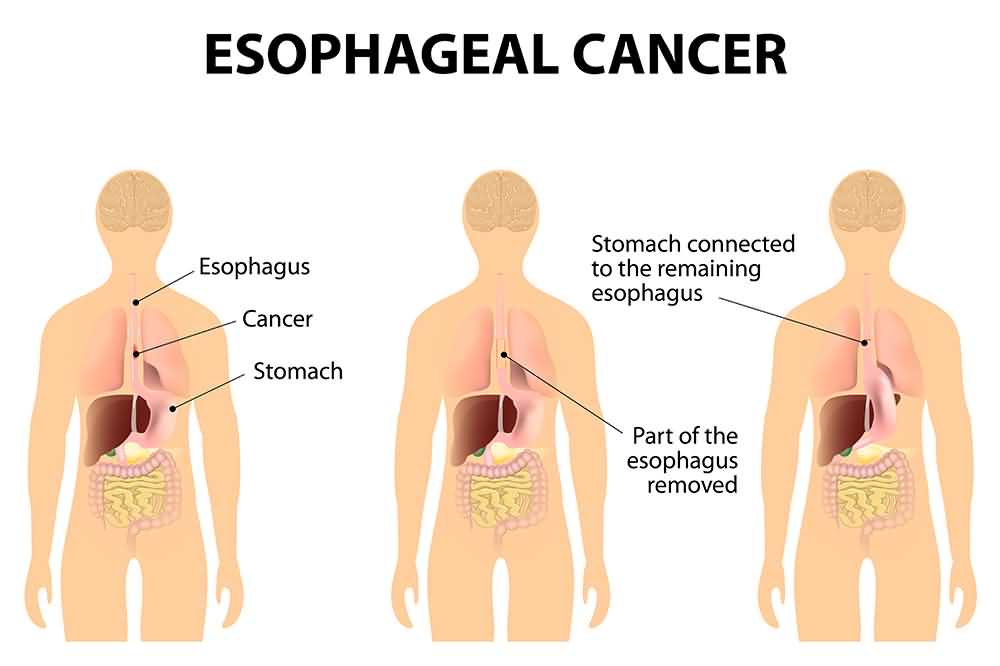Esophageal Cancer Surgery in Italy
Search and Compare the Best Clinics and Doctors at the Lowest Prices for Esophageal Cancer Surgery in Italy

Find the best clinics for Esophageal Cancer Surgery in Italy
No clinics available
India offers the best prices Worldwide
Price: $ 4,140

- Home
- Italy
WHY US?
At Medijump, we're making medical easy. You can search, compare, discuss, and book your medical all in one place. We open the door to the best medical providers worldwide, saving you time and energy along the way, and it's all for FREE, no hidden fees, and no price markups guaranteed. So what are you waiting for?

Free

Best Price

Widest Selection

Risk-Free
What you need to know about Esophageal Cancer Surgery in Italy

Esophageal cancer occurs anywhere along the esophagus (the long and hollow tube that runs from the throat to the stomach). Surgery for esophageal cancer is often used to try to remove cancer and some of the normal tissue that surrounds it for some earlier stage cancers. In some cases, the surgery may be combined with other types of treatment, such as radiation therapy and/or chemotherapy.
What does a Esophageal Cancer Surgery Procedure Involve?
Esophageal cancer surgery is performed under general anesthesia. The surgery is done using the standard open technique in which your surgeon makes one large incision in the chest or abdomen, or minimally invasive where your surgeon makes several small incisions. During the surgery, your surgeon will try to remove the tumor and some healthy tissue that surrounds it or removes some or most of the esophagus (esophagectomy). In some cases, a small upper portion of your stomach is removed as well (esophagogastrectomy).
How Long Should I Stay in Italy for a Esophageal Cancer Surgery Procedure?
You will be staying 7 to 10 days in the hospital following the surgery, but plan to stay in Italy for 10 to 14 more days after you are discharged from the hospital. During your stay in the country, you will be under a close monitor of your surgeon. Stitches are usually removed within 14 days.
What's the Recovery Time for Esophageal Cancer Surgery Procedures in Italy?
Esophageal cancer surgery is not a simple procedure, therefore, it may require long recovery time. You should not do any strenuous activity (including intense exercise and heavy lifting) for about 8 weeks after the surgery and you will need tube feeding (enteral nutrition) for 4 to 6 weeks to ensure adequate nutrition. Talk to your doctor about your recovery timeline, including when you can return to work and resume your daily activities.
What sort of Aftercare is Required for Esophageal Cancer Surgery Procedures in Italy?
Since your stomach size is likely reduced after the surgery, you need to adjust your diet and eat more frequently in smaller quantities. Your doctor may recommend follow-up care to prevent complications, including lung therapy, nutritional assessments, pain management, and psychosocial care. You also need to attend regular follow-up checkups to make sure the tumor has not returned and there are no new tumor growths.
What's the Success Rate of Esophageal Cancer Surgery Procedures in Italy?
Surgery for esophageal cancer is known to be highly successful. Patients who undergo surgery are more likely to survive long term than those who did not. However, like all serious operations, esophageal cancer surgery has some side effects and risks, including lung complications, voice changes, infection, bleeding, cough, leakage from the surgical connection of the stomach and the esophagus, acid or bile reflux, dysphagia, and reaction to anesthesia.
Are there Alternatives to Esophageal Cancer Surgery Procedures in Italy?
In some cases, your doctor may recommend chemotherapy (to kill cancer cells using drugs) or radiation therapy (to kill cancer cells using high-powered X-ray beams) along with or instead of surgery. Make sure to discuss with your doctor, the best option for you as well as the risk and benefit of each procedure.
What Should You Expect Before and After the Procedure
Esophageal cancer causes symptoms such as dysphagia, unintentional weight loss, chest pain, heartburn, coughing, and hoarseness. It may interfere with your ability to perform your daily activities and it can lead to dangerous complications. After the surgery, some of your symptoms should be relieved and your quality of life will be improved significantly.
Whilst the information presented here has been accurately sourced and verified by a medical professional for its accuracy, it is still advised to consult with your doctor before pursuing a medical treatment at one of the listed medical providers
No Time?
Tell us what you're looking for and we'll reachout to the top clinics all at once
Enquire Now

Popular Procedures in Italy
Prices Start From $131

Prices Start From $47

Recommended Medical Centers in Italy for procedures similar to Esophageal Cancer Surgery

- Interpreter services
- Translation service
- Religious facilities
- Medical records transfer
- Medical travel insurance
- Health insurance coordination
- TV in the room
- Safe in the room
- Phone in the room
- Private rooms for patients available

- Interpreter services
- Translation service
- Religious facilities
- Medical records transfer
- Medical travel insurance
- Health insurance coordination
- TV in the room
- Safe in the room
- Phone in the room
- Private rooms for patients available

- Interpreter services
- Translation service
- Religious facilities
- Medical records transfer
- Medical travel insurance
- Health insurance coordination
- TV in the room
- Safe in the room
- Phone in the room
- Private rooms for patients available

- Interpreter services
- Translation service
- Religious facilities
- Medical records transfer
- Medical travel insurance
- Health insurance coordination
- TV in the room
- Safe in the room
- Phone in the room
- Private rooms for patients available

- Interpreter services
- Translation service
- Religious facilities
- Medical records transfer
- Medical travel insurance
- Health insurance coordination
- TV in the room
- Safe in the room
- Phone in the room
- Private rooms for patients available

- Interpreter services
- Translation service
- Religious facilities
- Medical records transfer
- Medical travel insurance
- Health insurance coordination
- TV in the room
- Safe in the room
- Phone in the room
- Private rooms for patients available
Esophageal Cancer Surgery in and around Italy
Italy, a country in south-central Europe, boasts some of the most varied and picturesque landscapes in the world with the greatest collection of art treasures. The mere mention of Italy conjures up images of ancient Roman ruins, leaning tower of Pisa, stunning isles, rolling vineyards, and authentic cuisines. Besides its charming landscape, delicious food, and historical monuments, Italy is a popular spot for foreign patients to receive medical treatments. Its reputation for cutting-edge, high-quality treatment is growing rapidly. Although it is not the cheapest medical tourism destination, it is known for its highly qualified doctors and surgeons, as well as medical facilities that are equipped with the latest medical technology. Cosmetic surgery, hair transplant treatment, cosmetic dentistry, and cancer treatment are among the most popular treatments in the country.
Popular Parts of Italy
Rome, the capital of Italy, is the birthplace of Julius Caesar and is filled with Roman ruins, such as the Colosseum, Pantheon, and Forum. It is also home to Vatican City, the beautiful Sistine Chapel, the romantic Trevi Fountain, and picturesque restaurants filled with great food. Venice, another popular city in the country, is famous for its canals, gondola rides, and St. Mark's Basilica. On the west coast of Italy, visitors can find the Cinque Terre, which consists of five dramatically located hamlets. It is dotted with steep vineyards, mountains, and beautiful beaches. The fashion capital of Italy is Milan, the ancient towns of Pompeii, Naples, and stunning Florence with its Renaissance art are also popular tourist destinations.
Weather and Climate in Italy
Italy has a variable climate, so different areas can experience different weather. In general, the country has four seasons: spring (March to May), summer (June to August), autumn (September to November), and winter (December to February). Summer has marvelous weather, with sunny days and warm nights. Autumn brings cooler temperatures to the country, while the winter can be chilly or freezing, depending on the area. In spring, the temperatures start to get warmer.
Getting around in Italy
Leonardo da Vinci-Fiumicino Airport is the main gateway airport in Italy. It connects the country with numerous domestic and international destinations, including London, Beijing, Paris, New York, and Moscow. Many international visitors fly to the Milan Malpensa International Airport as well. Transport in Italy is reasonably priced and efficient. An extensive network of domestic flights is available, making it the quickest and most convenient way to travel around. Trains cover many areas across the country and have frequent departures. There are also high-speed trains connecting major cities. Although buses are slower than trains, they are cheaper and covers areas not served by trains. All major cities have good transport systems, with the bus, metro, and tram networks. In Venice, the vaporetti (small passenger ferries) are the main public transport option. Taxis are widely available and are moderately priced.
Tourist Visas in Italy
Since Italy is part of the Schengen area, nationals of EU countries do not need a visa to visit regardless of their purpose and/or length of stay. Citizens of Canada, Australia, the US, Hong Kong, South Korea, the UAE, and several other countries do not need a visa to stay in the country for up to 90 days within a six-month period. Other nationals not listed in the visa exemption countries will need to apply for a visa before visiting.
Additional Information
- Local Currency: The euro (€) is the official currency of Italy. The exchange rate from €1 is approximately US$1.17.
- Money & Payments: ATMs can be found easily throughout Italy, but make sure to be vigilant when making cash withdrawals in tourist areas since pickpocketing is common. Major credit cards are widely accepted. Tipping is not expected. However, you can always tip an extra 10% to 15% for exceptional service.
- Local Language: Italian is the official and most commonly spoken language in Italy. English is not widely spoken, except in larger cities such as Rome, Milan, and Florence.
- Local Culture and Religion: Roman Catholicism makes up around 80% of the population. The other 20% is made up of Muslims, agnostics, and atheists.
- Public holidays: Italy mostly celebrates Christian holidays. Some of the most important are Epiphany, Pasquetta, Saints Day, Liberation Day, and Christmas.
Popular Searches
- Plastic Surgery in Thailand
- Dental Implants in Thailand
- Hair Transplant in Thailand
- Breast Augmentation Thailand
- Gastric Sleeve in Thailand
- Gender Reassignment Surgery in Thailand
- Laser Hair Removal in Bangkok
- Botox in Bangkok
- Dermatology in Bangkok
- Breast Augmentation in Bangkok
- Coolsculpting in Bangkok
- Veneers in Turkey
- Hair Transplant in Turkey
- Rhinoplasty in Turkey
- Stem Cell Therapy in Mexico
- Rhinoplasty in Mexico
- Liposuction in Mexico
- Coolsculpting in Tijuana
- Rhinoplasty in Korea
- Scar Removal in Korea
- Gastric Sleeve in Turkey
- Bone Marrow Transplant in India
- Invisalign in Malaysia
- Plastic Surgery in the Dominican Republic
- Tummy Tuck in the Dominican Republic
- Plastic and Cosmetic Surgery in Poland
- Rhinoplasty in Poland
- Hair Implant in Poland
- Dental Implants in Poland
- IVF in Turkey